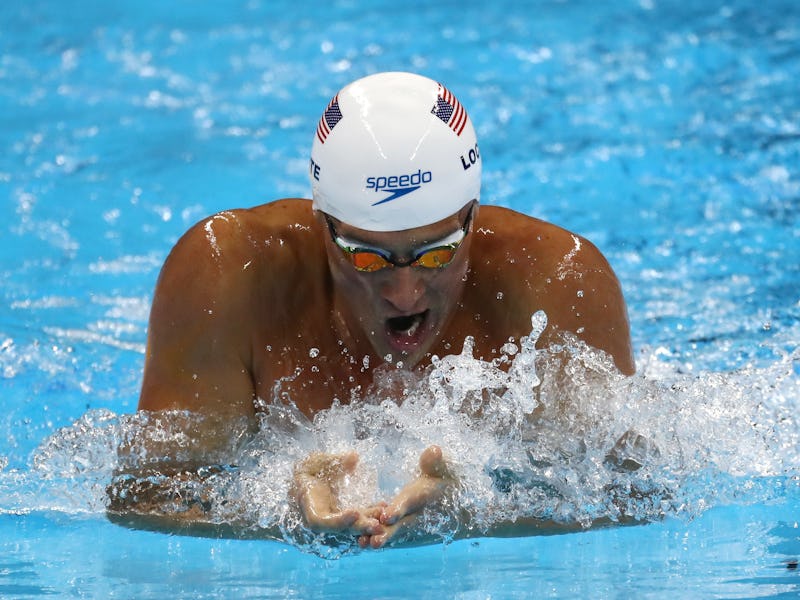Ryan Lochte's Hairlessness Is More Important Than His Hair
Should the silver-haired swimmer go completely bald? Science says JEAH!

Much fuss has been made over Team USA swimmer Ryan Lochte’s new silver hair — and, more recently, its slow metamorphosis into a chlorine-infused green hue. But this is the Olympics, people! What’s most important in this competition of speed is not Lochte’s hair but the fact that he has any left at all. For competitive swimmers, the quest for hydrodynamic perfection means sacrificing the water-catching vestiges of our hirsute evolutionary ancestry.
That swimmers get a hydrodynamic boost from complete depilation makes intuitive sense. After all, the planet’s fastest swimmers — like the razor-sharp sailfish, which reaches a maximum speed of 68 miles per hour — are completely devoid of hair, which is thought to increase a body’s resistance in the water by giving molecules something to stick to. Attempting to mimic the effect of being covered in water-skimming scales is, therefore, in Lochte’s best interest.
Not that he doesn’t know it. Following the grooming habits of championship swimmers before him, the gold-medal-winning sprinter has been very vocal about his commitment to grooming, admitting in a GQ interview this year that undergoing laser hair removal has made him “slick as a board.” (“I think ladies love swimmers because we’re hairless,” he added.)
The attempts at achieving dolphin-level slickness through depilation have been validated, to some degree, through scientific research dating back to the very hairy 1980s. One study, published in 1989 in the journal Medicine and Science in Sports and Exercise, concluded that going hairless reduces active drag, thus “decreasing the physiological cost of swimming.” A later study in the same journal, published in 1995, found that wearing a specially designed “torso suit” — effectively simulating hairlessness — similarly decreased body drag in swimmers.
No surprise here -- the planet's fastest swimmers, like this sailfish, are completely hairless.
But the effects might also be mental, as former swimmer Leanne Shapton describes in her book Swimming Studies. “Shaving is both psychological and practical,” she writes, describing the time-honored tradition of shaving one’s back the night before competition.
A blog post on the official USA Swimming website, discussing the minute details of the “shave down,” corroborates this idea. “There remains speculation that shaving down is more mentally beneficial than physically, unless you’re a descendant of Burt Reynolds and you’re really, really hairy,” correspondent Mike Gustafson writes. The idea is that shaving not only removes hair but takes off a layer of dead skin, making nerves on the surface of the skin even more sensitive to the sensation of gliding through the water, allowing them to feel fast.
Or, as the dolphin-bodied, ever-confident Lochte put it in his GQ interview, “If you look good, you feel good.”